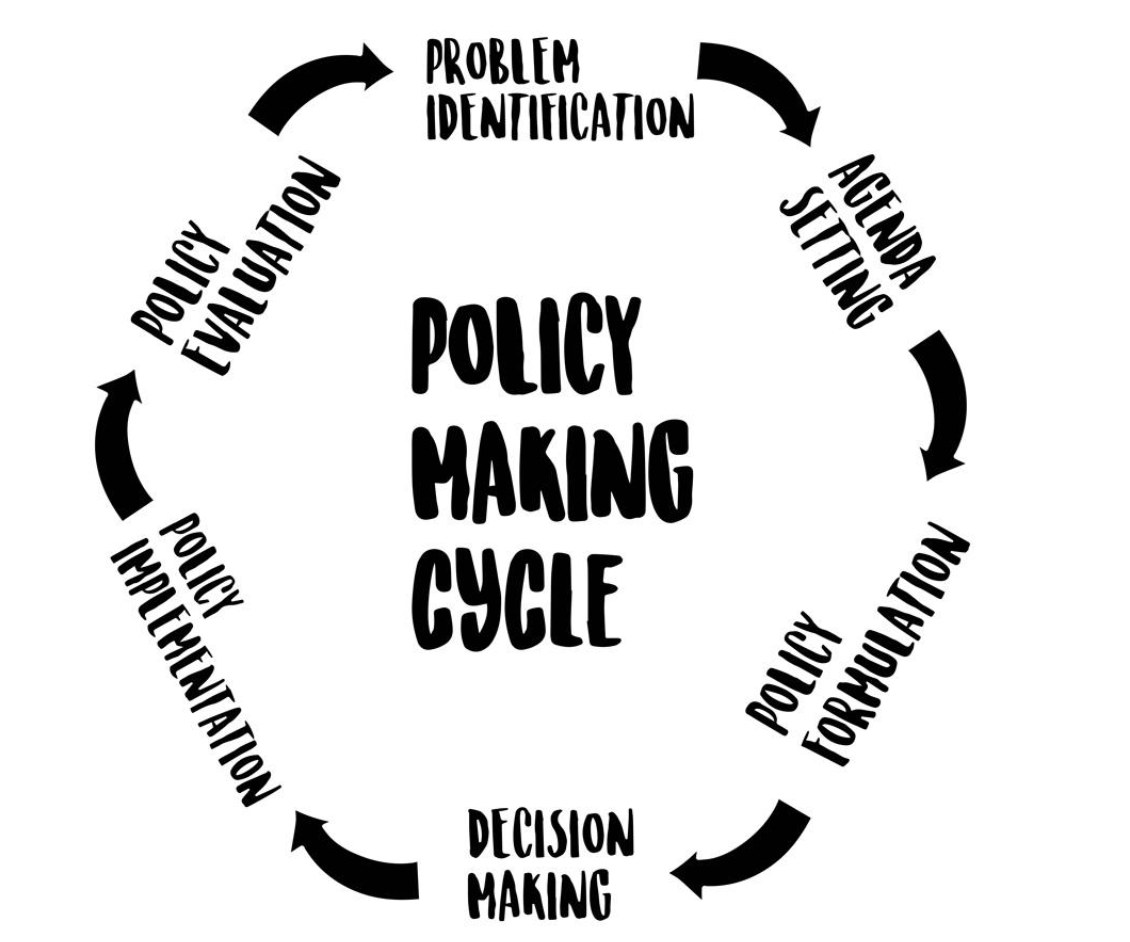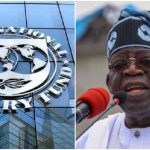Feature/OPED
Nigeria’s Electricity Sector and Bundle of Paradoxes

By Jerome-Mario Chijioke Utomi
I read with much relief two expositions on the electricity crisis in Nigeria and I must confess that any interested observers of the critical appraisal of the issue will agree that those submissions were factual and patriotically expressed.
While the first came from a reader who reacted to my initial intervention Still on Nigeria’s Electricity Crisis, the other and very revealing submission came from the government quarters, the Delta State Commissioner for Energy, Engr. Jonathan Ukodhiko.
Beginning with the first, it reads; the manifest failure of the poorly executed power sector privatization by the discredited Jonathan administration is a pointer to the root cause of our problems…… over centralized political structure. It is the cause of the unprecedented insecurity in the country, decaying infrastructures, arrested development etc. Until we restructure this nation politically and economically, meaningful economic development will continue to be elusive.
On his part, Jonathan Ukodhiko, the Delta State Commissioner for Energy, while speaking with journalists in Asaba recently, deplored the continued rip off of communities through estimated billings by the Benin Electricity Distribution Company (BEDC), noting that most rural communities were groaning under huge electricity bills as a result of estimated billings.
According to him, “you can’t continue to give people estimated billing, provide a bulk metering system for the communities so that they can pay for what they consume.
“I found out that most of the rural areas are a big mess; even places with grids have no light. Why is there no light?
“BEDC said It is because most of the people are not paying.
“What do you mean by these people not paying? You cannot continue giving people estimated bills and expect them to pay. So, we are discussing with BEDC to meter these communities.”
At this point, the state Commissioner dropped a bombshell.
Let’s listen to him; “For a fact, BEDC does not even have the power to distribute. As we know, the whole country is generating about 2500 megawatts, which is being shared with the whole of the country, even at that, BEDC is not even paying or buying from the GENCOs, maybe because the people are not paying.
“What they do is that the little that they get, they are giving it to the people that can pay in industrial areas, towns and oil states that they know can pay.”
What does all this mean to us as Nigerians?
Personally, it reminds me of the dust created by the fracas, by the ill-fated privatization of the electricity sector under President Goodluck Jonathan ‘led federal government which gave a clear and early indication of the inabilities of the companies that won the bids to take over and manage effectively the distribution centres.
Take as an illustration, while some were still sourcing for funds to complete payment to enable them to take over their new companies, some of the host states, going by media reports, rejected the consortium of companies located in their areas.
The Governors of Edo, Delta, Ekiti and Ondo, under the Benin distribution centre, for example, rejected the result of the privatization bid that presented Power Consortium as the preferred bidder. The governors maintained their stand that the security of the company that won the bid cannot be guaranteed in their states.
Adams Oshiomole of Edo, Olusegun Mimiko of Ondo, Emmanuel Uduaghan of Delta and Kayode Fayemi of Ekiti held a joint press conference two days after the results were announced in Abuja to denounce the exercise, insisting that they would not allow Vigeo Power Consortium to take over the distribution centre on whose bid their company had invested heavily in.
The governors insisted that “the process that produced Vigeo was fraudulent and unacceptable” and argued that the company had no capacity to run the distribution centre efficiently to give the people of their states the desired results in power supply.
Meanwhile, the NCP has stood its ground by releasing a list of approved preferred and reserve bidders for the 10 distribution companies and six generating companies. The list showed Vigeo as the preferred bidder of the Benin distribution centre.
Today, bearing in mind the above declaration by the Commissioner, it is obvious that these Governors (former/serving) have not only been vindicated; rather, their fears expressed many years ago can no longer be described as unfounded.
Echoing the same sentiment, the rejection of this earlier warning by the then the federal government has reinforced the belief in some quarters that here in Nigeria, once a direction is chosen by an average Nigerian leader, instead of examining the process meticulously and setting the right course; one that will allow us to overcome storm and reach safety before we can progress and achieve our goals, many obstinately persist with the execution of such plans regardless of a minor or major shift in circumstance.
To show that we did not draw any lesson from the past mistakes, the National Council on Privatization (NCP) in 2021, a report noted, approved the sale of five GenCos in the country through a competitive bidding process.
On a similar note, the Bureau of Public Enterprises (BPE), going by media reports, called on prospective investors to express interest in purchasing 100 per cent shareholding. It was reportedly gathered that the five power GenCos constructed under the National Integrated Power Project (NIPP) listed for sale are located in Kogi, Edo, Cross River, Ondo and Ogun.
According to reports, the five generation plants included Geregu Generation Company Ltd with gross installed capacity at ISO condition of 506 Megawatts (MW); Benin (Ihovbor) Generation Company Ltd with 507 MW; Calabar Generation Limited with 634MW; Omotosho Generation Limited with 513MW and Olorunsogo Generation Company Limited with 754MW.
The report also indicated that the sale was in continuation of the ongoing reforms of the Nigerian Electricity Supply Industry said to be consistent with the Nigerian Electric Power Policy and Electric Power Sector Reform (EPSR) Act, 2005. Prospective investors would therefore be expected to submit separate Expressions of Interest (EoI) for each GenCos.
Aside from this author, there are also those who might wish to ask; why the NCP failed to consider as important the warnings/concerns raised by Oshiomole, Mimiko, Uduaghan and Fayemi? Or at the very least investigates their observations/grievances?
Why has the present administration, on its part, neither revitalized the nation’s power/energy sector its power supply programme nor vigorously pursued the expansion of electricity generation and distribution up to 40,000 megawatts in four to eight years as previously promised in its draft manifesto? But continued in the old order of Nigerian Electric Power Policy and Electric Power Sector Reform (EPSR) Act, 2005?
While answer(s) to the above questions are expected from relevant authorities/agencies, two realities stand out.
One truth must be told to the effect that as a nation, we have carried out greater devotion and adherence to the maintenance of old structures, policies and principles in the sector rather than engineering real policies that will guarantee the sustainable development of electricity and boost energy supply in our country.
Secondly, the present crisis in the sector was created by the federal government, exacerbated by the federal government and can only be managed/solved by the federal government.
So, using the above scenario as a dashboard to correct this present challenge, it is important as a nation to openly admit and adopt within the sector both structural and managerial changes/approaches that impose more leadership discipline than conventional, and create a sector that is less extractive but more innovative in operation.
This is important not for political consideration but to end the bundle of paradoxes in the sector and grow our economy.
Utomi Jerome-Mario is the Programme Coordinator (Media and Public Policy), Social and Economic Justice Advocacy (SEJA), a Lagos-based Non-Governmental Organization (NGO). He can be reached via Jeromeutomi@yahoo.com/08032725374
Feature/OPED
Of Mandate Group, Delta Unity Group and Delta 2027

By Jerome-Mario Utomi
The April 12, 2025, defection of members of the Delta Unity Group (DUG) to the All Progressive Congress (APC) signposts a major political shift in Delta’s politics.
Pundits believe that the Peoples Democratic Party (PDP) which presently controls the state needs a miracle to win Delta’s 2027 governorship election given the massive haemorrhage that has hit it. Essentially, the over 10,000 members of the DUG and their supporters who defected to the APC were made up of seasoned grassroots PDP chieftains.
The defectors were received by the National Chairman of the All-Progressive Congress (APC), Mr Abdullahi Umar Ganduje, Governor Monday Okpebholo of Edo State, and the Chairman of the Governing Board of the Niger Delta Development Commission (NDDC), Mr Chiedu Ebie, alongside other notable political figures in Delta State.
So far, Deltans are enamoured by the significant political shift with many describing the development as a political earthquake which was long overdue. Because of its grassroots orientation, political analysts have likened the DUG to the Mandate Group, an independent political pressure group that midwifed the election of Mr Bola Tinubu, now President, as Lagos State Governor in the late 1990s.
In the run up to the 2023 presidential election, among so many objectives, the group was primed and positioned to defend President Tinubu’s mandate and promote democracy, unity, justice, and liberty in Nigeria, mobilize support for him and Vice President Kashim Shettima’s administration, Promote Unity and Justice: Foster national unity, justice, and liberty for all Nigerians among others.
The Mandate Group which has established structures in all 36 states, with plans to launch state chapters and currently have 580,000 members in Lagos and aim to reach 40 million members nationwide within the next 12 months, targets various segments of society, including: Students, Workers, Artisans, Teachers, Fishermen, Farmers and Women.
In like manner, the DUG has emerged as a third force in Delta State politics. Although it is not a new body, it has, over the years, been quietly bestriding Delta’s political landscape for the good of the state. Call it a third force in the politics of Delta State, and you won’t be wrong because, from all ramifications, that is what DUG represents.
DUG is by no means a political party, but, as the name implies, it is a Delta State based political pressure group convened a few years ago by the selfless, foresighted and influential trio of Mr Olu-Tokunbo (Lulu) Enaboifo, Mr Chiedu Ebie and Sir Itiako (Malik) Ikpokpo.
Their aim and dream were to establish a political pressure group with an agenda to modernize Delta State and also serve as the brain box of the campaign platform of Olorogun David Edevbie, who was vying for the governorship candidate of PDP towards the 2023 gubernatorial election.
Even though the aspiration ended with the Supreme Court ruling in favour of Governor Sheriff Oborevwori of Delta State, the DUG remained a strong force that started building gradually on the dream of a modernized Delta State. DUG has an organizational structure of 17 National Executive Council members, a Board of Trustees, and Local Government Executives in all the 25 local governments in Delta State, with Ward Executives in all the wards across Delta State, DUG is deeply rooted in the grassroots of Delta State with its cell-like structures.
Prior to the 2023 election, a wing of DUG, at the Obinoba Declaration, crossed over to APC, where the APC governorship candidate, Mr Ovie Omo-Agege, described them as the intelligent wing of PDP.
The group significantly made a huge difference in the 2023 general elections in Delta State. The DUG members in the Delta North Senatorial District, at that point in time, remained with PDP and after full deliberation and strategizing, opted to support the candidature of the APC governorship candidate and all other candidates of APC, even though they had not formally left the PDP. Consequently, most of them were either suspended or cast away by PDP after the elections.
It was easy to blend and work harmoniously with the progressives due to the progressive mindset of DUG members. After the 2023 general elections in Delta State, DUG members of Ika Federal Constituency continued to align and work closely with the APC to strengthen the party and ensure that it is properly positioned to convert the Ika Federal Constituency to an APC constituency come 2027.
To the glory of God, President Tinubu found DUG’s co-founder/convener, Mr Ebie, fit to chair the Governing Board of the NDDC in 2023. This further gave the DUG more vigor to project the Renewed Hope Agenda of the progressive governance of Mr President. Following this appointment, Ika Federal Constituency became the heartbeat of DUG in Delta State, which has now radiated positively to Ndokwa/Ukwuani and Aniocha/Oshimili Federal Constituencies in Delta North.
This wave, which has led to the massive decamping of members of PDP and the Labour Party into DUG in preparation for absorption into the APC, has also witnessed the reactivation of some dormant APC ambers and the massive welcoming of previously non-partisan and newly retired civil servants into the APC, having witnessed the positive impact of the Renewed Hope Agenda of Mr. President.
Because the group was fully poised for the reconfiguration of Delta State in the progressive fold of the APC, it is therefore, not surprising to witness the humongous crowd that emptied into APC on 12th day of April, 2025 in Agbor, Ika Federal Constituency, Delta State.
Going by the above development, it is obvious that come 2027, Ika nation in particular and Deltans in general shall witness the dethronement of People’s Democratic Party, PDP, in the state and enthronement of a people focused leadership to be formed by the All Progressive Congress, APC, in line with President Bola Ahmed Tinubu’s Renewed Hope Agenda.
Utomi, a media specialist, writes from Lagos, Nigeria. He can be reached via Jeromeutomi@yahoo.com/
Feature/OPED
Piracy in Africa’s Creative Sector: How Creators Can Protect Their Content

Africa’s creative industries, from music and film to fashion, writing, and branding, are experiencing remarkable growth. However, as the sector flourishes, so do the threats posed by piracy and copyright infringement. Without proper protection, creators risk losing the value and recognition they deserve for their original work.
Copyright remains the first and most important line of defence. In many African countries, copyright protection begins automatically once a creative work, such as a song, logo, film, or design, is fixed in a tangible form. This protection can last for the creator’s lifetime, and in most cases, up to 70 years after. Yet, while automatic copyright provides a foundation, official registration strengthens legal standing and can be critical in resolving disputes.
When a creator’s work is used without permission, the violation must be addressed swiftly. Experts advise that the first step is to gather evidence—screenshots, URLS, timestamps, user details, and even data showing engagement or financial gain from the misused content. Proof of ownership, such as original files with timestamps, draft versions, or social media records of earlier uploads, is equally vital.
“Creators should always have proof of ownership ready,” says Frikkie Jonker, Director of Anti-Piracy at MultiChoice. “That could be anything from original project files to old emails or posts. It’s one of the most effective tools in enforcing your rights.”
Once evidence is collected, creators can issue takedown requests through social platforms or send formal cease-and-desist letters to website owners or hosts. Although enforcement processes differ by country, most African nations have copyright laws aligned with global standards like the U.S. DMCA. In many cases, showing credible ownership is enough to have infringing content removed.
If infringement continues or is being done at scale, such as by piracy rings or repeat offenders, creators may need to escalate the issue by reporting it to national copyright commissions or law enforcement. Efforts are also being bolstered across the continent through cooperation under agreements like the African Continental Free Trade Area (AfCFTA), with international bodies like Interpol, Afripol, and WIPO supporting cross-border enforcement.
Preventative measures are just as important. Creators are encouraged to use tools like digital watermarking and content fingerprinting to protect their work from unauthorised use online. Furthermore, smart monetisation strategies, such as YouTube’s Content ID syste,m can allow creators to earn revenue even when their content is reused without prior permission.
By understanding their rights, taking proactive steps to protect their creations, and using available technologies, African creatives can safeguard their work while continuing to build sustainable, long-term careers.
Feature/OPED
A Journey Through Policy: My Personal Experience

By Saifullahi Attahir
If there was ever anything that gave me goosebumps and immense pleasure, it was being surrounded by intellectuals and mature minds absorbing facts and figures about governance, economics, public health, policymaking, national security, and international relations. In such situations I easily lose myself, forgetting almost all other things.
Even at medical school, my best lectures were those with frequent digressions, whereby the lecturer would discuss the pathogenesis of diseases for 30 minutes and later sidetrack into discussing politics, governance, or other life issues. I always enjoyed classes led by Prof. Sagir Gumel, Dr. Murtala Abubakar, Dr. Rasheed Wemimo, Dr. Aliyu Mai Goro, and co.
During such lectures, I often observed some of my colleagues disappointment for such deviation. I rather casually show indifference, for I was eternally grateful for such discussions due to the stimulatory effect they had on my mind.
After such classes, I sometimes followed up with the lecturer, not to ask about a medical concept I did not grasp, but to ask for further explanation on policy making, project execution, budgetary expenditures, why African countries are left behind, and similar pressing issues.
In situations where I can’t catch up with the lecturer, I jotted down the questions for further deliberation.
One of the manifest feature I know about my greediness was at reading books. I can open five different books in a day. I lack such discipline to finish up one before another. I can start reading ‘Mein Kampf’ by Adolf Hitler, and halfway through 300 pages, I would pick up ‘My Life’ by Sir Ahmadu Bello, and would have to concurrently read both until the end.
I often scolded myself for such an attitude, but I can’t help myself. The only way to practice such discipline was to at least read two different books in a day. Such was a triumph in my practice of self-discipline. This was apart from my conventional medical textbooks.
To some of my friends, I was called an accidental medical doctor, but actually it was a perfect fate guided by the merciful Lord that I’m studying medicine.
For it was only medicine that makes reading books easier for you. Although time is precious in this profession, but one finds it easier to do anything you are passionate about. The daily interaction we have with people at their most vulnerable state was another psychostimulant. Seeing humans suffering from disease conditions is heartache. Some of the causes are mere ignorance, poverty, superstitions, and limited resources.
The contribution one can give couldn’t be limited to just prescribing drugs or surgical procedures that end up affecting one person. It’s much better to involve one self in to position that may bring possible change to the whole society even in form of orientation.
What also motivated me more was how I wasn’t the first to traverse this similar path. Bibliophiles were common among medical students and medical professionals.
At international level, the former Prime Minister of Malaysia, Dr. Mahathir Muhammad, was a physician.
Most of the current economic development of Malaysia was attributed to him. The South American revolutionary figure Che Guevara was a physician. Atul Gawande was an endocrinologist, health policy analyst, adviser to former President Obama, campaign volunteer to former President Bill Clinton, and adviser to USAID/WHO on health policies.
Frantz Fanon was another physician, psychiatrist, racial discrimination activist, and political writer. Dr. Zakir Naik was a renowned Islamic scholar, comparative religion expert, and physician.
At the national level, Prof. Usman Yusuf is a haematologist, former NHIS DG, and currently a political activist. Dr. Aminu Abdullahi Taura was a psychiatrist and former SSG to the Jigawa state government. Dr. Nuraddeen Muhammad was a psychiatrist and former cabinet minister to President Goodluck Jonathan.
During ward rounds and clinics, my mind often wanders to enquire not just about the diagnosis but the actual cause of the disease condition; why would a 17-year-old multiparous young lady develop peripartum cardiomyopathy (PPCM)? Why would a 5-year-old child develop severe anaemia from a mosquito bite? Why would a 25-year-old friend of mine develop chronic kidney disease, and his family would have to sell all their belongings for his treatment? Why are our Accident and Emergency units filled with road traffic accident cases? Was it bad road conditions or lack of adherence to traffic laws and orders?
Why are African countries still battling with 19th century diseases like Tuberculosis, filariasis, and malarial infections? Why issues of fighting cervical cancer and vaccination campaigns are treated with contempt in our societies? Why access to basic primary healthcare in Nigeria was still a luxury 50 years after Alma Ata declaration?
The questions are never-ending…
Answers to these questions could be found not in the conventional medical textbooks like Robbins/Cotrand, Davidson, or Sabiston. Answers to these questions are there on our faces. Answers to these questions are tied to the very fabric of our social life, our public institutions, our culture, and our life perspectives.
In order to make any significant contribution towards the betterment of this kind of society, it would be quite easier as an insider rather than an outsider. You can’t bring any positive outcome by just talking or commenting. It was rightly stated that a cat in gloves catches no mice.
The real players in a game are always better than the spectators. A player deserves accolades despite his shortcomings, frequent falls, and inability to deliver as planned theoretically. For the player has seen it all, because so many things in public life are not as they appear. It’s only when you are there that the reality becomes visible. This is the reason why many leaders who have goodwill and enjoy public support appear to have lost track or contributed insignificantly when elected or appointed into office.
But despite all these challenges, one can’t decline to do something good just because something bad might happen. The risk is worth it….
Attahir wrote from Federal University Dutse
-

 Feature/OPED5 years ago
Feature/OPED5 years agoDavos was Different this year
-
Travel/Tourism9 years ago
Lagos Seals Western Lodge Hotel In Ikorodu
-

 Showbiz2 years ago
Showbiz2 years agoEstranged Lover Releases Videos of Empress Njamah Bathing
-

 Banking7 years ago
Banking7 years agoSort Codes of GTBank Branches in Nigeria
-

 Economy2 years ago
Economy2 years agoSubsidy Removal: CNG at N130 Per Litre Cheaper Than Petrol—IPMAN
-

 Banking2 years ago
Banking2 years agoFirst Bank Announces Planned Downtime
-

 Sports2 years ago
Sports2 years agoHighest Paid Nigerian Footballer – How Much Do Nigerian Footballers Earn
-

 Technology4 years ago
Technology4 years agoHow To Link Your MTN, Airtel, Glo, 9mobile Lines to NIN
















